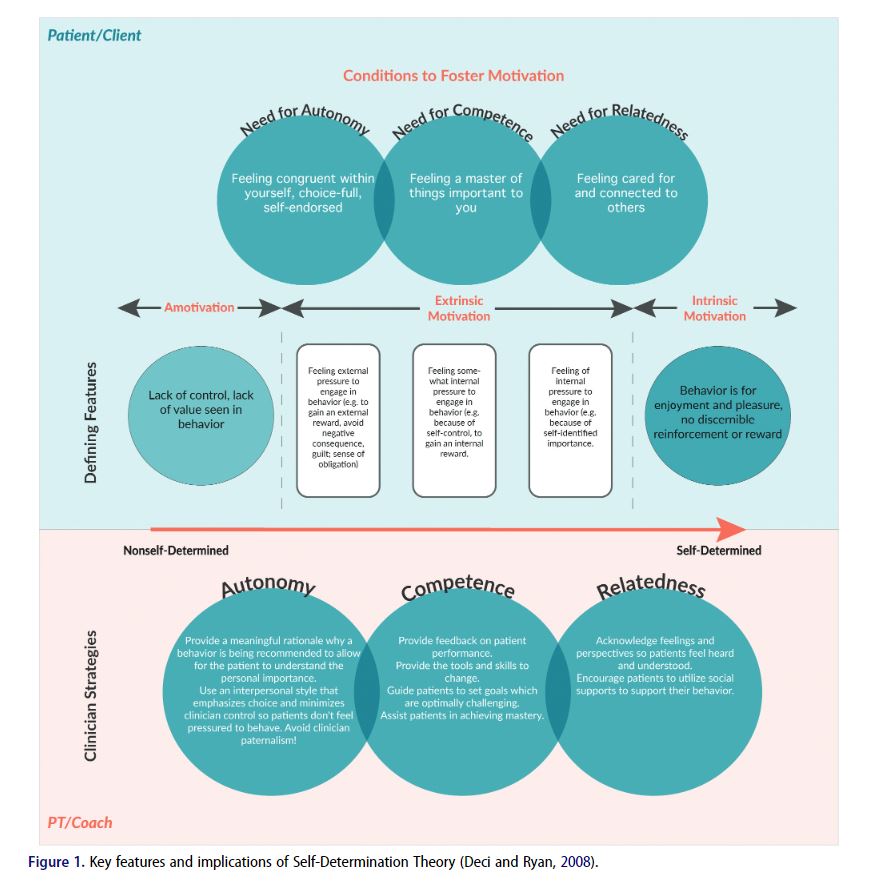According the Transtheoretical Model (TTM), behavior change happens over a five-stage process linked to readiness to change. The five stages of change are:
-
pre-contemplation; do not intend to take action in the next 6 months
-
contemplation; intending to take action in the next 6 months
-
preparation; ready to take action in the next 30 days
-
action; has been making changes in the last 6 months
-
maintenance; engaged in new behavior for 6 or more months
Patients can move from one stage to another stage in linear or non-linear fashion and can move forward or backward (relapse) on the stage continuum. Self-efficacy is a central disposition in how patients move through the stages of change. Self-efficacy can be increased through cognitive and behavioral processes. Cognitive processes include increasing knowledge of causes, consequences, and management strategies for unhealthy behaviors. Behavioral processes, in turn, is focused on promoting positive habits and breaking negative habits.
Understanding what motivates patient to change is another key element to behavior change. Self-Determination Theory (SDT) suggests that motivation exists on a continuum going from amotivation (a reduction in the motivation to initiate or persist in behavior change), to extrinsic motivation, to intrinsic motivation. Amotivation can result from the lack of competency to carry out a change, the lack of expectation that a change will lead to the desired outcome, or the lack of desire in the first place. Extrinsic motivation is to engage in change for a separable, tangible reward and relies on external pressures to engage in behavior change. It can help in initiating a change but does not necessarily lead to maintenance because such motivations change easily depending on contextual factors. Intrinsic motivation is to engage in change for the sake of itself and relies on the inherent satisfaction of performing a behavior. Patients that are intrinsically motivated are more likely to engage in changes for the long run as behaviors become incorporated into their sense of self.

From Rethorn, Z., Bezner, J., & Pettitt, C. (2021). From expert to coach: health coaching to support behavior change within physical therapist practice. Physiotherapy Theory And Practice, 1-16. doi: 10.1080/09593985.2021.1987601
References
1. Rethorn, Z., Bezner, J., & Pettitt, C. (2021). From expert to coach: health coaching to support behavior change within physical therapist practice. Physiotherapy Theory And Practice, 1-16. doi: 10.1080/09593985.2021.1987601
2. Lee JS, Jung S, Park IH, Kim JJ. Neural Basis of Anhedonia and Amotivation in Patients with Schizophrenia: The Role of Reward System. Curr Neuropharmacol. 2015;13(6):750-759. doi:10.2174/1570159x13666150612230333


